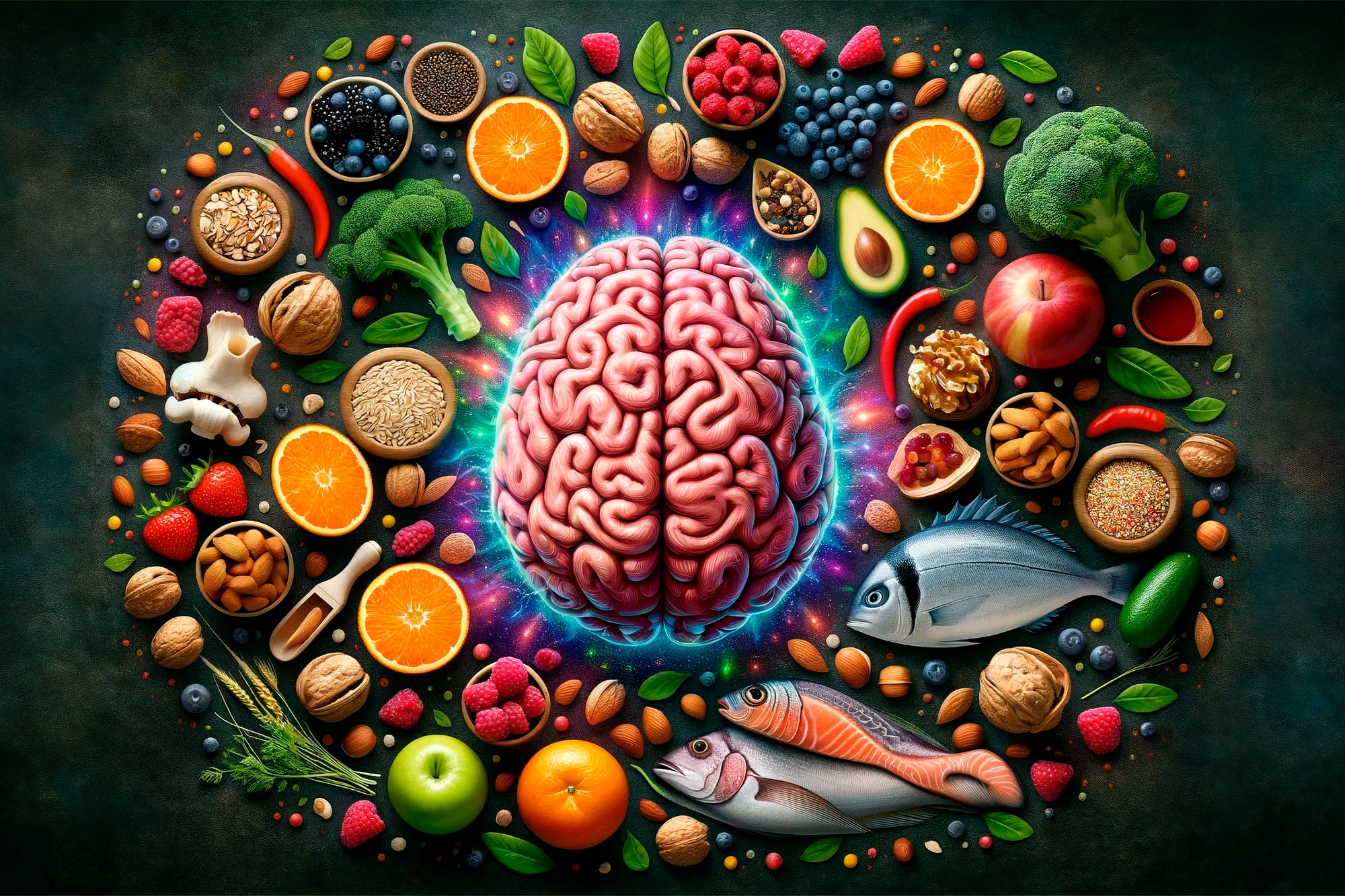A new publication from the Gerontological Society of America details how proper nutrition, particularly the MIND diet, can enhance brain function and mitigate the risk of cognitive decline in the elderly. It stresses the importance of tailoring nutritional discussions to individual goals and the increasing need for supplements with age. Credit: SciTechDaily.com
Nutrition plays a critical role in maintaining brain health in older adults, with the MIND diet offering cognitive benefits and personalized dietary discussions enhancing overall wellness.
“Insights & Implications in Gerontology: The Vital Role of Nutrition in Brain Health,” a new publication from the Gerontological Society of America, explores nutritional choices that have been shown to improve cognition and decrease the risk of cognitive impairment and dementia in older adults.
Consumption of a healthful diet is a behavioral strategy that can help to prevent the development of dementia as people age, the publication says. It also reports on the roles of vitamins and minerals in nutrition and brain function and focuses on how to implement person-centered conversations about the impact of diet and nutrition on overall wellness, including brain health.
Using a person-centered approach that ties conversations about nutrition to patient goals is an effective strategy for starting conversations about diet and health, according to Kathryn Porter Starr, PhD, RDN from Duke University School of Medicine and Durham VA Medical Center, who served as one of the faculty who oversaw the publication’s development.
“Broaching the topic of diet and nutrition can be challenging. I start by asking patients what their goals are,” she said. “These goals could include physical goals such as maintaining muscle mass, cognitive goals such as preserving memory, as well as functional goals such as being able to travel or play with grandchildren. Linking information about nutrition to helping adults achieve their goals is an effective strategy for stimulating motivation to implement healthy changes.”
The Mediterranean-DASH Diet Intervention for Neurodegenerative Delay, or MIND diet, is an example of a dietary pattern that is associated with improved cognition. This dietary pattern focuses on the consumption of vegetables (especially green leafy vegetables), nuts, berries, beans, whole grains, fish, poultry, and extra virgin olive oil while limiting red meat, processed meats, butter and margarine, regular cheese, pastries and sweets, and fried foods. People who consume this dietary pattern have been found to be the equivalent of 7.5 years younger in terms of cognitive abilities. The publication includes more details about the MIND diet and other dietary patterns that support healthy nutrition.
Ideally, individuals are able to obtain all necessary nutrients from their diet. However, the risk for inadequate vitamin and mineral intake increases as people age, and some people may benefit from consumption of fortified foods and or dietary supplements to enhance their nutritional status.
“I would love for everybody to get all of their micronutrients from food,” Starr said. Unfortunately, for most older adults, it’s really challenging to do that due to physiological changes that occur with aging and certain disease states that affect absorption, so we often recommend a multivitamin.”
Reference: “Insights & Implications in Gerontology: The Vital Role of Nutrition in Brain Health” Gerontological Society of America.
Other publication faculty include Rose Ann DiMaria-Ghalili, PhD, RN, FASPEN, FAAN, FGSA from Drexel University; Sareen S. Gropper, PhD, RDN, LDN from Florida Atlantic University; and Roger A. Fielding, PhD from Tufts University School of Medicine. Support for “Insights & Implications in Gerontology: The Vital Role of Nutrition in Brain Health” was provided by Haleon.

Sarah Carter is a health and wellness expert residing in the UK. With a background in healthcare, she offers evidence-based advice on fitness, nutrition, and mental well-being, promoting healthier living for readers.








